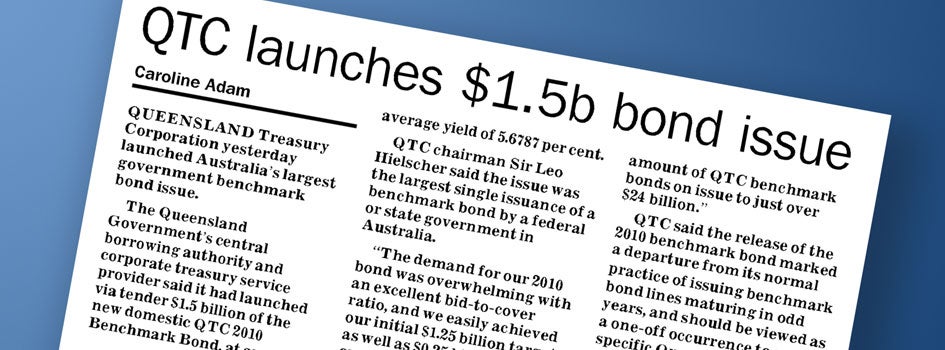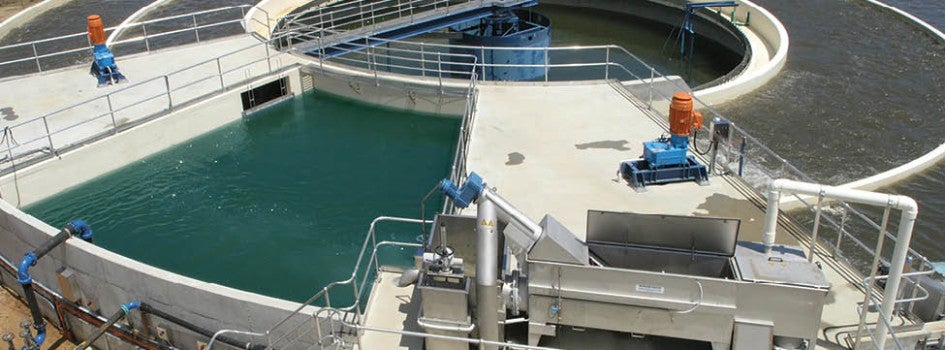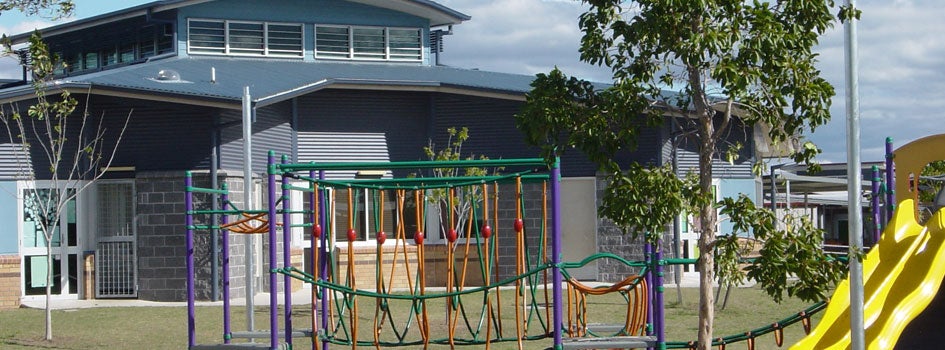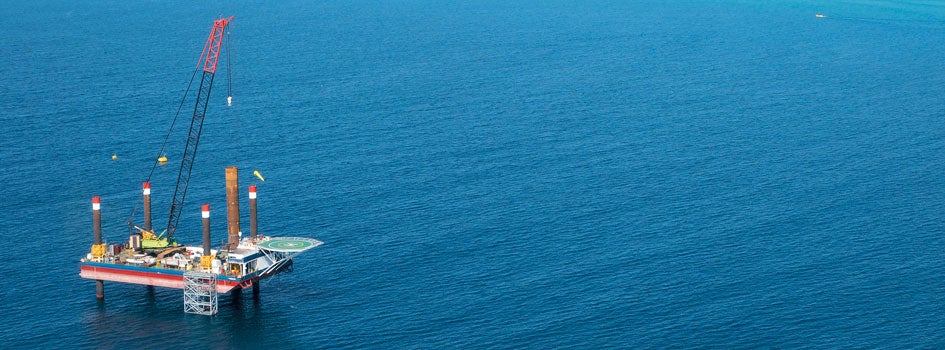History - 2002-2007
Consolidating experience

With greater understanding of its clients’ requirements, QTC customised its lending products, establishing client specific debt pools for larger borrowers to give them complete flexibility and increased capacity to manage the risks inherent in their debt portfolios.
To provide more targeted support on clients’ major projects, QTC established a secondment program in 2002. By placing its employees in key strategic and operational roles, QTC added support and expertise to these businesses while gaining valuable experience to contribute to QTC’s own operations.
In 2005, QTC joined with the Local Government Association of Queensland to establish LG Infrastructure Services Pty Ltd, with the aim of providing assistance to local governments in evaluating and delivering infrastructure projects in a cost effective and efficient manner.
In 2006 and 2007, QTC extended its services further to assist and support local governments through the completion of financial sustainability reviews of 105 local governments. One of the most significant projects undertaken by QTC to date, these reviews allowed individual governments to identify business opportunities and risks to develop appropriate business strategies and better plan for the future.
Back to topSharing our experience

Further developing its client relationship model, QTC commenced a secondment program, where QTC employees were seconded to work in its stakeholders’ and clients’ businesses. These secondments supported the State’s accelerated development, while also providing QTC’s own employees opportunities to build strong working relationships and obtain a greater understanding of client businesses.
In the 2006-07 financial year, for example, almost a fifth of QTC’s employees lent their expertise to a range of key Government initiatives, with 28 secondments across the year. Members of QTC’s teams worked on projects to secure the State’s long-term water supply, upgrade transport routes to facilitate economic growth and improve our health and education services.
QTC’s secondment program also extended to the secondment of its Chief Executive, Stephen Rochester, for nine months to Energex’s retail arm, Sun Retail and its Chief Operating Officer, Neil Castles, to the Department of Local Government to assist with the council amalgamation review.
Today, our secondment program continues to receive positive client and employee feedback. QTC has continued to provide its talented people to a range of significant projects, including to Projects Queensland, where its employees’ skills assist in analysing and procuring public sector infrastructure for the benefit of all Queenslanders. In return, our employees’ own skills, knowledge and capabilities continue to grow as they participate in other business operations and gain broader understanding of QTC’s clients and stakeholders from the ground up.
Back to topGrowing our advisory services

As the scale and scope of QTC’s financial advisory services continued to grow, QTC found itself providing advice ranging from interest rate risk management through to assistance with a variety of procurement projects.
QTC also found its advisory services sought to assist on an international level, when from September to November 2001, it was engaged by The Australian Agency for International Development (AusAID), the Australian Government agency responsible for managing Australia’s overseas aid program, to undertake a review of the debt obligations and debt management practices of the Papua New Guinean Government.
The review, as required by the World Bank, included a detailed analysis on the existing structure of the public debt, the identification of its main contingent liabilities and its guarantees, and the identification of risk management strategies with respect to the identified exposure risks. This assisted the Papua New Guinean Government in meeting the new loan requirements of the World Bank.
In addition to this project, QTC had a series of meetings with representatives from the Indonesian Ministry of Finance, to assist their establishment of a debt management office.
QTC also continued to assist the Queensland public sector with financial and risk advice on a number of major projects with significant outcomes for the State’s economic development and growth. QTC was engaged to work on an increasingly diverse range of projects with increasing complexity. For example, in the 2002-03 financial year alone, QTC provided its expert advice to projects including the redevelopment of Brisbane’s Suncorp Stadium, the Australian Magnesium Corporation’s proposed processing operation, the Queensland Ambulance Service subscription scheme, the expansion of the Townsville Power Station, the Southbank TAFE redevelopment, the sale of the Brisbane Markets Corporation and the Gateway Bridge duplication.
QTC’s advisory services today remain strategically focused on delivering quality service and value to its clients and to Queensland. As our clients’ operations become more complex, QTC is committed to assisting its partners across the public sector in the delivery of successful financial outcomes and added value to their operations.
Back to topAustralia's largest government bond tender

In February 2005, QTC launched the 2010 benchmark bond in the largest single issue ($1.5 billion) by any government in Australia at the time, receiving more than $5 billion in competitive bids. This was a deviation from QTC’s traditional practice of having bond lines maturing in ‘odd’ years, and was launched to meet specific client needs.
This issuance of this five-year bond had a number of benefits, including providing our clients with the most cost-effective funding alternative; diversifying our exposure in the existing benchmark lines; responding to our clients’ and investors’ requirements by adapting our business strategies; and providing investors with alternatives to other government bonds maturing in the same year.
Back to topLG Infrastructure Services: centralising skills, resources and solutions for local governments

LG Infrastructure Services (LGIS) was formed during 2005 to provide access to centralised skills, resources and solutions that would otherwise not be available to individual local governments, at a lower cost than other alternatives.
Launched on 31 August 2005, the LGIS joint venture between QTC and the Local Government Association of Queensland provided targeted support to the procurement of local government infrastructure development. Providing advice and assistance to local governments in evaluating and delivering infrastructure in a cost-effective and efficient manner, the LGIS joint venture was the first of its kind in Australia, playing an integral role in the preparation and management of infrastructure throughout Queensland.
Following its launch, LGIS was engaged on numerous assignments to provide advice and services to local governments for projects such as refurbishments of council chambers, delivery of sewerage and waste water treatment plants, negotiations with mining companies in relation to water supply, property development and the upgrade of airports.
Through coordination and collaboration of local governments to procure infrastructure together, LGIS captured economies of scale and scope that were previously unable to be achieved by local governments in Queensland, within a framework of better risk management. In the 2006-07 financial year, for example, LGIS exceeded expectations by delivering advisory services for projects with a capital value in excess of $3 billion, as well as a number of major regional infrastructure projects— including the $90 million South-East Queensland Pressure and Leakage Management project and the $32 million Home WaterWise project. In January 2009, LGIS also began the delivery of the ClimateSmart Home Service on behalf of the Queensland Government, providing energy efficiency services to Queensland homes.
Today, LGIS is uniquely placed to help local governments achieve the best quality and value in infrastructure and other large-scale projects. Through LGIS, QTC works with LGAQ to better understand the circumstances behind various desired outcomes, with a view to designing and evaluating cost-effective and efficient infrastructure solutions. LGIS incorporates procurement, project management, tender administration, and project delivery services, drawing on improved bargaining power, increased economies of scope and scale, and the collective knowledge and experience gained through projects facilitated for Queensland’s local governments.
Back to topThe Supported Debt Model

In pursuit of the best value-for-money outcomes for the State’s infrastructure development program, QTC responded to the Government’s request for innovative financial solutions. With the capital works program including a number of social infrastructure projects, such as the development of new schools and hospitals, new approaches to financing solutions were required.
In 2007-08, QTC established its Major Projects Team and provided it the task of working with key Government stakeholders to deliver value-for-money financial outcomes. An outcome of this collaboration was the development of a financing option for Public Private Partnerships (PPPs), known as the Supported Debt Model.
Under the Supported Debt Model, the State Government provided the notionally risk free level of senior debt for the project’s lower risk operational phase. The amount of senior debt would vary depending on the risk profile of the specific project.
The rationale behind the model was that, by using public sector debt, the overall cost of the project may be reduced, thereby enhancing the value of money objective for the State.
The Queensland Government’s South East Queensland Schools Project, which reached financial close in May 2009, was the pilot project for the Supported Debt Model, however the potential of the Model extended to a range of major social infrastructure projects, such as hospitals, prisons and other schools.
Back to topMajor projects in water and electricity

In the 2006-07 financial year, QTC assisted the State and its clients with the financial and risk assessment of key water infrastructure projects proposed for Queensland, following a period of sustained drought. These included the Gold Coast Desalination Project, the Southern Regional Water Pipeline and Western Corridor Recycled Water projects, and the Wyaralong and Traveston Crossing dams. QTC also provided advice to the Queensland Water Commission and Queensland Treasury in relation to the purchase of bulk water and treatment assets of the South-East Queensland local governments, and the implications for funding the delivery of infrastructure assets, management of risk and water pricing.
In the same year, on behalf of Queensland Treasury, QTC fulfilled a number of key roles in the sale of retail energy assets by the State, in the lead-up to the deregulation of the Queensland electricity and gas markets. These sales represented a major investment in Queensland’s future energy needs, and contributed more than $3 billion to the Queensland Future Growth Fund for investment in new water infrastructure, transport, clean coal technology and renewable energy initiatives.
In May 2006, QTC’s Chief Executive, Stephen Rochester, was seconded to Energex’s retail arm, Sun Retail Pty Ltd, to prepare that organisation for sale. During this time, Stephen maintained a strategic involvement in QTC’s operations and resumed his full time role with QTC in February 2007.
Back to topStrengthening our role: Financial Sustainability Reviews (FSRs)

In the 2006-07 financial year, QTC completed financial sustainability reviews of 105 local governments participating in the Local Government Association of Queensland’s (LGAQ’s) ‘Size, Shape and Sustainability’ initiative. One of the most significant projects undertaken to date by QTC, this project further strengthened its role of providing financial and risk management advice and services to its clients.
Each financial sustainability review assessed a local government’s capacity to meet its financial commitments in the short-, medium- and long-term, and provided insight into the financial health of each local government at the point of review and over a10-year horizon.
In collaboration with LGAQ and local government representatives, the review was conducted by QTC’s Local Government team, which worked with several of the organisation’s financial modellers to establish a commonly accepted definition of financial sustainability, select suitable financial indicators, and develop a robust assessment approach that would deliver a uniform rating scale. The reports were used by the Local Government Reform Commission, who reported back to the State Government on proposed boundary changes and amalgamations in July 2007.
While QTC had experience in undertaking credit reviews for government-owned corporations, the scale of this task presented new challenges. Completing 105 reviews in less than 12 months required considerable organisation-wide support, as well as thorough planning, processes and systems.
While the financial sustainability review project greatly enhanced QTC’s knowledge and understanding of the issues facing its local government clients, it also gave these local governments tools to better manage risk, understand their financial health and measure their performance against detailed indicators.
The successful delivery of this important project demonstrated QTC’s culture of teamwork and responsiveness. Leveraging the foundations of its client engagement strategies and information sharing culture, QTC was able to work with its local government clients to deliver tailored advice while assisting the State to achieve its best financial outcomes. These reviews continue today and provide a useful measure of the financial viability of the local government sector in Queensland.
Back to top